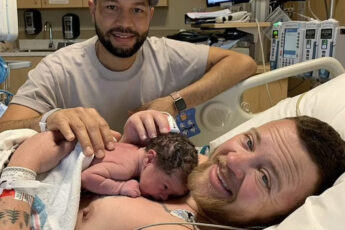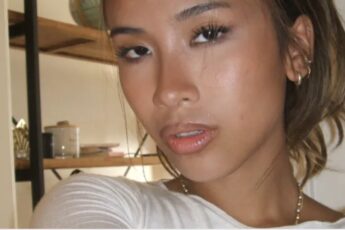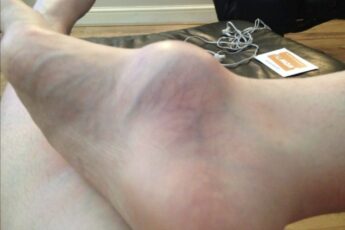The first-class cabin was already buzzing with quiet conversation and the rustle of newspapers when Richard Dunham boarded, rolling behind him a sleek Italian leather carry-on. His eyes swept the aisle until they landed on his seat: 4B. He gave a small nod of satisfaction.
But then he saw her.
The woman in 4A sat slightly angled toward the window, her oversized sweater bunching at the elbows, her sweatpants worn soft with age. Her frizzy hair was pulled into a loose bun, and at her feet rested a faded backpack instead of the glossy designer luggage stacked around the cabin. She looked like she didn’t belong.
Richard smirked, clearing his throat.
“Excuse me,” he said sharply, tapping her shoulder. “I believe this is first class.”
Startled, she turned, her wide eyes meeting his. “Yes. I’m in 4A,” she said softly, holding up her boarding pass as if it were a shield.
“Must’ve been a mistake,” Richard muttered under his breath as he squeezed into 4B, grimacing when their arms brushed. With exaggerated impatience, he jabbed the call button for the flight attendant.
“There has to be another seat,” he insisted when she appeared. “Some of us actually paid for this section.”
The woman flushed scarlet and turned toward the window.
“I’m sorry, sir,” the attendant said politely but firmly. “It’s a full flight. There are no other seats available.”
Richard sighed dramatically. “Fine. Let’s just get this over with.”
As the plane taxied and lifted, he grumbled audibly about “airlines lowering standards” and “first class not meaning what it used to.” When the woman reached for her water bottle, her elbow brushed near him.
“Could you not lean so far over?” he snapped. “You’re practically in my lap.”
“Sorry,” she whispered, pulling herself smaller, as if trying to disappear.
A few rows away, an elderly couple exchanged disapproving glances. A teenager two seats back angled his phone and began recording. But the woman said nothing—just stared out the window as if the clouds might carry her away.
An hour passed. Turbulence shook the cabin. The captain’s calm voice came over the intercom.
“Ladies and gentlemen, this is your captain speaking. We’re expecting a few bumps, but nothing to worry about. While I have your attention, I’d also like to extend a very special welcome to a distinguished passenger traveling with us in the first-class cabin today…”
Every head turned. Richard frowned. The woman beside him lifted her gaze.
And in that moment, everything changed.
“…please join me in welcoming Dr. Eleanor Hayes, recipient of the National Humanitarian Award and founder of Water for Every Village—a charity that has brought clean drinking water to over half a million people worldwide. We’re honored to have you flying with us today, Doctor.”
For a heartbeat, the cabin was silent. Then came the applause—warm, loud, rolling through first class and spilling back into coach. Passengers craned their necks for a glimpse of her. The woman Richard had dismissed in an oversized sweater raised a hand shyly, cheeks flushed, offering a small, almost embarrassed wave.
Richard froze. His smirk crumbled. Around him, he felt the shift—the elderly couple staring at him with open disdain, the teenager’s phone still recording. His words, his tone, his arrogance—all of it hung in the air, exposed.
The woman—Dr. Hayes—turned slightly toward him. Her eyes were calm, not cruel, but steady. “Excuse me,” she said softly, “I may need to lean over again. I have notes to review before my meeting in Geneva.”
Her voice held no anger, no pettiness. Just quiet dignity.
Richard swallowed hard, his throat dry. “Of course,” he mumbled, shrinking into his seat. For once, he had nothing else to say.
The rest of the flight passed differently. Passengers smiled at Dr. Hayes, asked gentle questions, thanked her for her work. The teen who had filmed uploaded the clip with the caption:
“He mocked her for looking ‘out of place’ in first class. Turns out, she’s changing the world.”
By the time they landed, the video already had thousands of views.
As for Richard, he slipped off the plane without meeting anyone’s eye. For the first time, his leather bag and tailored jacket felt heavy, meaningless.
Because everyone else in that cabin had already seen the truth:
Status isn’t stitched into clothes or bought with money.
Respect is earned in the quiet, relentless work of making life better for others.
And on that flight, in seat 4A, the most important person in the room wasn’t the man with the designer luggage—
It was the woman he had tried to make small.







